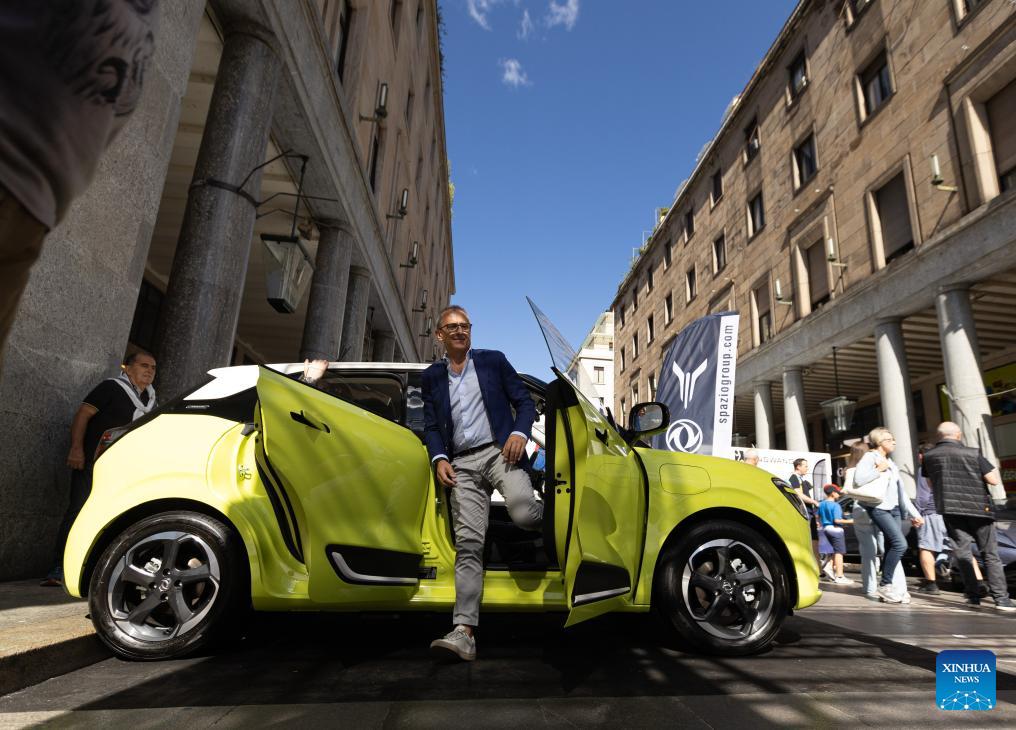
 0 Comment(s)
0 Comment(s) Print
Print E-mail Xinhua, October 31, 2024
E-mail Xinhua, October 31, 2024

People visit the booth of Chinese carmaker Dongfeng on the 2024 Turin Auto Show in Turin, Italy, Sept. 13, 2024. [Photo/Xinhua]
Despite strong opposition from several member states, the European Commission has finalized its decision to levy tariffs on Chinese-made electric vehicles (EVs), which is a misguided trade protectionist measure hurting many but benefiting no one.
The EU's wrong decision will hurt the interests of European consumers and impede the bloc's green transition plan, while undermining the legitimate rights and interests of Chinese EV enterprises and potentially dampening their enthusiasm to invest in Europe.
The tariffs are supposed to protect the EU's car manufacturers. But even European automotive giants like BMW and Mercedes-Benz oppose the tariff plan. Experts argue that these tariffs will weaken, rather than enhance, the competitiveness of the European industry in the long term.
Hildegard Mueller, president of the German Association of the Automotive Industry, said "the introduction of countervailing tariffs is a step backwards for global free trade and thus for prosperity, job security and growth in Europe."
It should be noted that the situation has not yet evolved into a dead end, as the Chinese and European sides have both agreed to continue their consultations. However, it calls for greater sincerity and political courage on the EU part to seek a reasonable solution and correct any mistakes.
China always advocates the resolution of trade disputes through dialogue and consultation. The European Commission also noted that the EU and China are still exploring alternative measures within the WTO framework to address trade concerns. Currently, technical teams from both sides are engaged in a new phase of consultations.
China-EU relations are strategically significant and hold broad development prospects. China is the world's largest developing economy, and the EU is the largest union of developed countries. They are two major forces in building a multi-polar world. China-EU cooperation has served as a stabilizer for a long time in a turbulent world, injecting many certainties into the global system.
Therefore, there is no reason to let the EV tariffs friction disrupt the overall development of China-EU ties or impede mutually beneficial cooperation in many areas. With both sides collaborating constructively and showing sufficient sincerity and flexibility, proper solutions could be found and any escalation of trade frictions could be avoided.